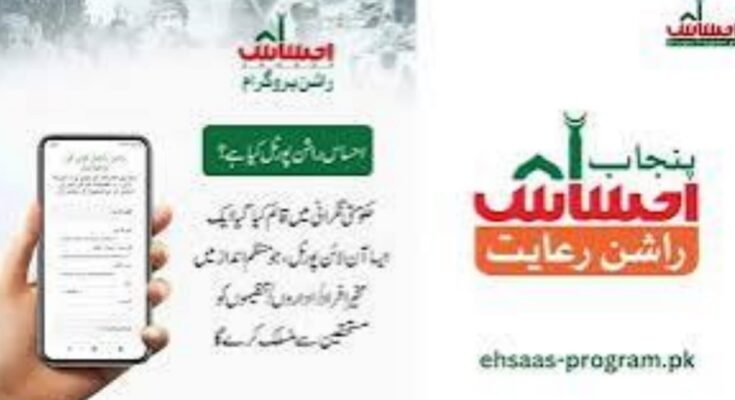Understanding Ehsaas Rashan Riayat Program
The Ehsaas Rashan Riayat Program is a flagship initiative under the broader umbrella of the Ehsaas Program, which aims to uplift the socio-economic status of marginalized communities in Pakistan. Focused specifically on addressing food insecurity.
This program distributes ration cards to eligible households, enabling them to procure essential food items at subsidized rates from utility stores across the country. Launched with the vision of Prime Minister Imran Khan, the program embodies the government’s commitment to social welfare and poverty alleviation.
Objectives of the Program:
The primary objective of the Ehsaas Rashan Riayat Program is to combat hunger and ensure that no individual or family goes to bed on an empty stomach.
By targeting vulnerable communities, including low-income households, widows, orphans, and persons with disabilities, the program aims to provide them with the necessary support to meet their nutritional needs.
Through the provision of ration cards, the program promotes dignity and equity by empowering beneficiaries to purchase food items of their choice from designated stores, thus preserving their sense of agency and choice.
By fostering a sense of solidarity and collective responsibility, the program strengthens social cohesion within communities, fostering a culture of support and compassion.
Implementation Mechanisms:
The implementation of the Ehsaas Rashan Riayat Program involves a multi-faceted approach, characterized by collaboration between government agencies, private sector stakeholders, and civil society organizations. Key components of the implementation mechanism include:
Through a transparent and inclusive process, eligible households are identified and registered to receive ration cards, ensuring that assistance reaches those who need it the most.Upon verification of eligibility criteria, ration cards are issued to beneficiaries, entitling them to purchase essential food items at subsidized rates.
The program collaborates with utility stores nationwide, facilitating the availability of subsidized food items and ensuring accessibility for beneficiaries. Rigorous monitoring and evaluation mechanisms are put in place to assess the effectiveness and impact of the program, enabling continuous improvement and course correction as necessary.
Impact of the Program:
The Ehsaas Rashan Riayat Program has had a profound impact on the lives of millions of Pakistanis, providing them with a lifeline in times of need. Some key areas where the program has made a tangible difference include:
Poverty Alleviation:
By reducing the financial burden associated with purchasing food items, the program contributes to poverty alleviation, freeing up resources that can be allocated to other essential needs such as education and healthcare.
Nutritional Security:
Access to subsidized food items ensures that beneficiaries have access to nutritious food, thereby addressing malnutrition and related health issues, particularly among children and vulnerable populations.
Empowerment of Women:
Women, who are often the primary caregivers in households, benefit significantly from the program, as it empowers them to make informed decisions regarding food purchases and household expenditures.
Resilience Building:
By providing a safety net during times of crisis, such as natural disasters or economic downturns, the program contributes to building resilience within communities, enabling them to withstand shocks and recover more swiftly.
Challenges and the Way Forward:
Ehsaas Rashan Riayat Program has achieved significant milestones, challenges persist, including ensuring the program’s sustainability, expanding coverage to reach more beneficiaries, and addressing issues of transparency and accountability in implementation.
REGIESTER
To overcome these challenges and further enhance the program’s impact, continuous efforts are required to streamline processes, leverage technology for efficient delivery, and strengthen partnerships with stakeholders across sectors.


